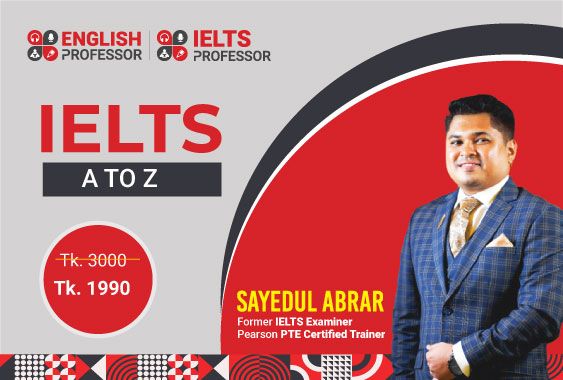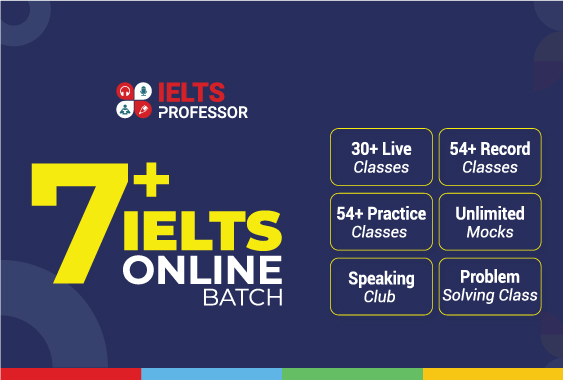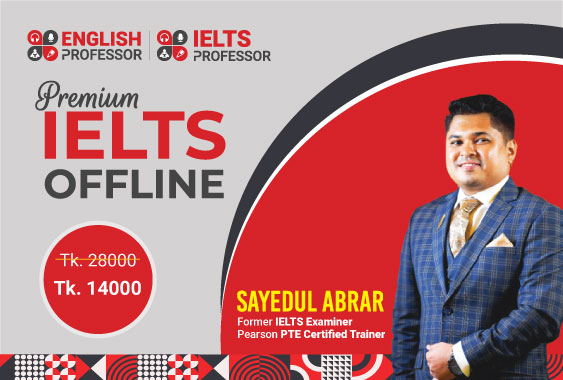
If you’re wondering how I got an IELTS Band Score 9
Overall, you’re not alone. Many students, especially from Bangladesh, dream
of achieving the highest possible score in the IELTS exam to unlock global
study and career opportunities. But the big question remains—how can you
achieve a perfect IELTS Band Score 9 Overall?
The journey to this score isn’t just about studying hard;
it’s about studying smart. In this article, I’ll break down the exact
strategies, resources, and mindset shifts that helped me reach an IELTS Band
Score 9 Overall. I’ll also share real-life examples, challenges Bangladeshi
students face, and practical solutions to overcome them.
Achieving an IELTS Band Score 9 Overall is possible with the
right plan, dedication, and understanding of the test format. Whether you’re
struggling with the writing section, finding it difficult to improve your
speaking fluency, or wondering which resources actually work, this guide will
give you a roadmap to success.
By the end of this article, you’ll have a clear idea of how
I got an IELTS Band Score 9 Overall and how you can follow a similar path.
Let’s dive into the details and start working toward your IELTS success!
Understanding the IELTS Examination
The International English Language Testing System (IELTS) is
a standardized test that assesses English language proficiency. It comprises
four sections:
- Listening:
Evaluates the ability to understand spoken English in various contexts.
- Reading:
Assesses comprehension of written texts, including descriptive, factual,
and analytical passages.
- Writing:
Tests the ability to articulate ideas coherently in written form.
- Speaking:
Measures spoken English skills through a face-to-face interview.
Each section is scored individually, and the average of
these scores determines the overall band score. Achieving a Band Score 9
signifies an expert level of English proficiency.
My Journey to an IELTS Band Score 9 Overall
Embarking on the path to an IELTS Band Score 9 Overall
required dedication, strategic planning, and consistent effort. Here's a
breakdown of the steps I took:
1. Initial Assessment
I began by taking a practice test to identify my strengths
and weaknesses. This assessment revealed that while I was strong in reading and
listening, I needed improvement in writing and speaking.
2. Structured Study Plan
Based on my assessment, I devised a study plan:
- Listening
and Reading: Allocated 1 hour daily to practice with various
materials, including podcasts and articles.
- Writing:
Dedicated 1.5 hours every other day to practice essay writing, focusing on
structure and clarity.
- Speaking:
Engaged in daily conversations with peers and mentors to enhance fluency
and pronunciation.
3. Leveraging Resources
I utilized a mix of traditional and digital resources:
- Books:
"The Official Cambridge Guide to IELTS" provided comprehensive
insights.
- Online
Platforms: Websites like IELTS Liz offered valuable tips and practice tests.
- Local
Workshops: Attended sessions conducted by British Council Bangladesh
to gain expert guidance.
4. Practice and Feedback
Consistent practice was key. I regularly submitted essays
for evaluation and participated in mock speaking tests. Constructive feedback
helped me refine my skills and address specific areas of improvement.
5. Overcoming Challenges
Balancing preparation with academic commitments was
challenging. To manage this:
- Time
Management: Created a realistic timetable, ensuring dedicated study
periods without compromising other responsibilities.
- Stress
Management: Practiced mindfulness techniques, such as deep breathing
and meditation, to maintain focus and reduce anxiety.
Real-Life Example: A Bangladeshi Student's Success Story
Consider the journey of Rahim, a student from Dhaka. Facing
financial constraints, Rahim couldn't afford expensive coaching classes.
Instead, he:
- Utilized
Free Resources: Leveraged free online materials and local libraries.
- Formed
Study Groups: Collaborated with peers to practice speaking and share
resources.
- Sought
Mentorship: Connected with alumni who had successfully cleared IELTS
for guidance.
Through determination and smart strategies, Rahim achieved
an IELTS Band Score 9 Overall, securing a scholarship to a prestigious
university abroad.
Strategies for Bangladeshi Students
Bangladeshi students often face unique challenges, such as
limited access to resources and cultural differences. Here are tailored
strategies to overcome these hurdles:
1. Accessing Affordable Resources
- Public
Libraries: Utilize local libraries that offer IELTS preparation
materials.
- Online
Platforms: Websites like Magoosh provide affordable courses and
practice tests.
- Community
Centers: Participate in free workshops and seminars conducted by
educational organizations.
2. Enhancing English Proficiency
- Engage
in English Media: Regularly watch English news channels, movies, and
read newspapers to improve comprehension and vocabulary.
- Join
English Clubs: Participate in local English-speaking clubs to practice
conversational skills.
3. Understanding Cultural Nuances
- Cultural
Exposure: Engage with native English speakers through language
exchange programs to understand colloquialisms and cultural contexts.
- Practice
with Peers: Simulate real-life scenarios with friends to build
confidence in speaking and listening.
Summary
Achieving an IELTS Band Score 9 Overall is attainable with
strategic planning, consistent practice, and the right resources. By
understanding the exam structure, leveraging available materials, and
addressing personal challenges, aspirants can reach their desired scores.
Remember, persistence and adaptability are key to success.
Frequently Asked Questions (FAQs)
1. How long should I prepare for the IELTS to achieve a Band Score 9 Overall?
Preparation time varies per individual. On average,
dedicating 2-3 months with consistent daily practice can yield significant
improvements.
2. Are there specific resources recommended for Bangladeshi students?
Yes, resources like the British Council's IELTS preparation
materials and local English language centers in Bangladesh offer tailored
support.
3. How can I improve my speaking skills if I don't have native speakers to practice with?
Engage in English-speaking clubs, practice with peers, or
use language exchange apps to connect with speakers worldwide.
4. What are common mistakes to avoid in the writing section?
Avoiding unclear thesis statements, ensuring cohesive
paragraphs, and adhering to word limits are crucial to scoring well.
5. How important is accent in the speaking test?
Clarity and pronunciation are more important than accent.
Focus on speaking clearly and confidently.
6. Can I retake only one section of the IELTS if I'm not satisfied with my score?
No, the IELTS requires retaking the entire test if you wish
to improve your score in any section.
7. How are band scores calculated?
Each section is scored individually, and the average of
these scores determines the overall band score.
8. Is self-study sufficient to achieve a Band Score 9 Overall?
Self-study can be effective if structured properly.
Utilizing quality resources and seeking feedback can enhance your preparation.
9. How does the IELTS differ from other English proficiency tests?
IELTS focuses on British English and includes a face-to-face
speaking component, differing from tests like TOEFL, which emphasize American
English and use computer-based speaking assessments.
10. What should I bring on the test day?
Bring a valid passport or national ID, along with necessary stationery. Ensure you arrive early to complete registration procedures smoothly. By addressing these questions and implementing the strategies discussed, Bangladeshi students can navigate the IELTS preparation process effectively and achieve their desired band scores.













